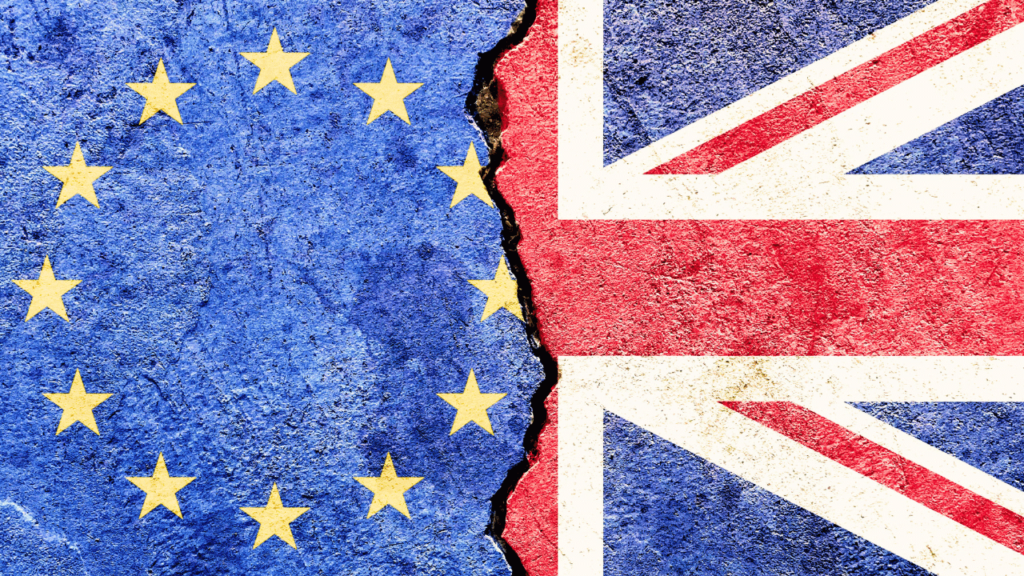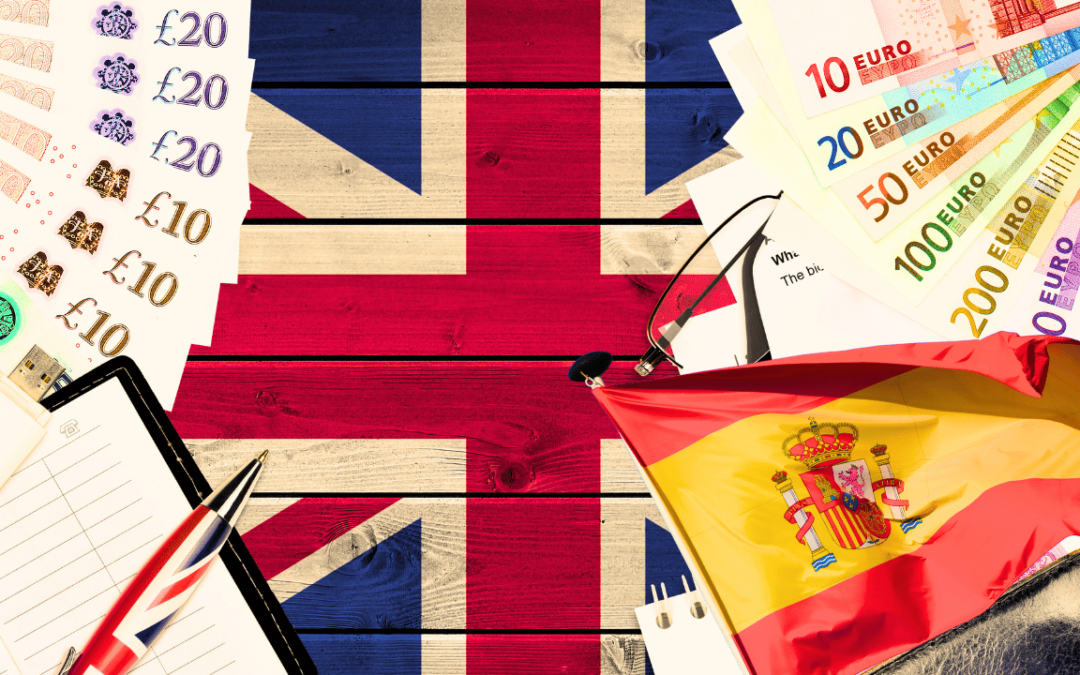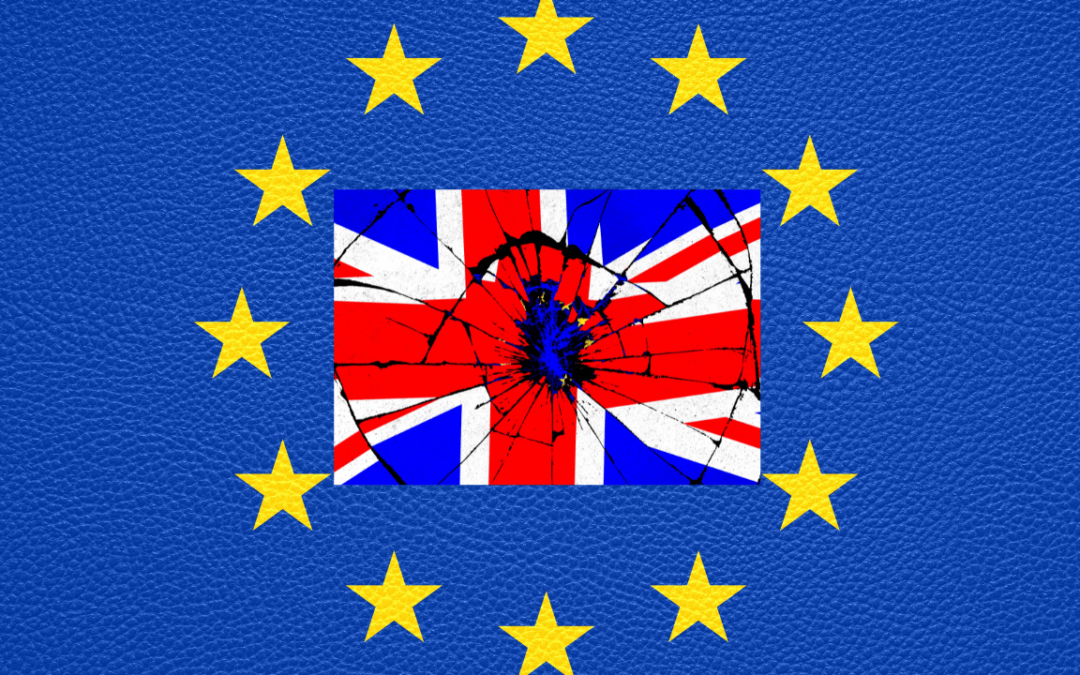There are great benefits of being an EU citizen if you’re moving to or visiting Spain or anywhere else in Europe. So what are they, and what did Brit expats lose when Brexit happened and they left the EU?
If you’d rather watch the video, here it is below. Otherwise, read on!
Brexit has turned UK citizens into non-EU citizens, and quite a few of our subscribers are from the UK, so later I’ll be briefly explaining the differences between what EU & non-EU citizens need to do if they want to live in an EU country.
But let’s start with…
The benefits.
EU citizenship is a given for people who hold the nationality of an EU country, and with that you have lots of rights. Some of these rights are based on national laws, which might be different from country to country, while others are based on EU laws, which are the same in all EU countries.
Your rights.
These are all about everyday life, like shopping, driving, working, healthcare, and family & relationship issues. The first fundamental right is that you can live and move about within the EU without being discriminated against on the grounds of nationality.
You also get the right to consumer protection, and also healthcare if you meet certain requirements. I’ll come to those in a minute.
Can I work in the EU as well?
Yes, you have the same right to work as all other EU citizens, and there are lots of laws protecting your rights as a worker. In fact, there’s a whole Charter of Fundamental Rights of the European Union, and that’s very important and tells you all about the common values of the countries of the union and what they’re based on.
I’ll summarise it, because there’s such a lot of awesome rights set up for everyone’s protection, and such a lot of detail that we’d be here for hours if I told you all about them.

If you want to read the full details, HERE is a link to the EU website where the Charter is.
The Charter
The EU was founded on the indivisible, universal values of human dignity, freedom, equality and solidarity, and it’s based on the principles of democracy and the rule of law.
At the heart of it is the individual, which is why it’s all about citizenship of a Union, and creating an area of freedom, security and justice for every individual.
So it’s all about you, and every other individual citizen with their common values.
The EU also respects the different cultures and traditions and national identities of all of its countries, and helps them improve and develop their organisation, and it guarantees the free movement of people, services, goods and capital.
This makes the Charter a very good thing in principle. People with common values and respect don’t tend to go to war against each other. And the EU was formed at a time when we were all very aware of what treating some people as inferior to others and giving them fewer rights did to Europe in World War Two.
What came out of that was this set of rules that benefits every single individual, including a respect for human dignity, that’s number one.
Number one
Human dignity is inviolable and should be protected.
Number two
Everyone has the right to life, so no death penalty.
Number three
Everyone has the right to respect for their physical and mental integrity. So no eugenics and no cloning, amongst other things.
Number four
No torture, or inhumane treatment or degrading punishments.
Number five
No slavery or human trafficking.
Number six
The right to liberty and security.
Number seven
Respect for privacy and family life, home and communications.
Number eight
Protection of personal data.
Number nine
The right to marry and have a family.
Number ten
Freedom of thought, conscience and religion, and the right to change your beliefs and the right to conscientious objection.
Number eleven
Freedom of expression and information.
Are there a lot more?
There are fifty four articles.
Fifty four! Is that absolutely necessary?
Not only necessary, but vitally important.
But it’s going to take all day to go through the list!
Alright, let’s speed it up a bit so we can move on, I think I can paraphrase even more.
Numbers twelve to nineteen
These are all freedoms, there’s freedom of the arts & sciences, the rights to education, work, run a business, own property, get asylum, and finally get protected against extradition or expulsion.
Numbers twenty to twenty six
Equality! Everyone is equal, no discrimination on the grounds of culture, religion, language or gender, and the rights of children, the elderly and the disabled are protected.
Numbers twenty seven to thirty eight
Solidarity! That’s workers rights protected so working conditions are fair, they can negotiate, get protection, there’s no child labour, you’ve got a right to family life, social security, healthcare, access to services, environmental protection and consumer protection.
Numbers thirty nine to forty six
Citizen’s rights, like the right to vote in European and local elections, the right to good administration, access to documents, an independent ombudsman, the right to petition, freedom of movement and residence, and finally diplomatic protection.
Numbers forty seven to fifty
Justice! That’s the right to a fair trial, the presumption of innocence, the right of defence, the right to fair and proportional penalties, and the right to not be tried twice for the same offence.
Numbers fifty one to fifty four
These are all about general provisions and application of the charter, the scope and interpretation of your rights and principles, the level of protection and the prohibition of the abuse of all of your rights under this charter. Basically, making sure it all works and it’s legal.

So why did Britain want to leave?
That’s a very good question, and one that doesn’t make complete sense to me, bearing in mind that the UK was heavily involved in the development of the union’s laws and rules. But I’ll leave that argument for another blog.
What happens if you’re an EU citizen and you want to move to another EU country, and what’s the difference between that and if you’re a non-EU citizen.
The big difference is that if you’re an EU citizen and you have freedom to live and work in the EU, you don’t need a visa to move to another EU country, but if you’re a non-EU citizen, then you do need a visa, and there are conditions to getting all of the different visas that mean you need, for example, more money, more qualifications, more documents and have a more difficult process before you even find out whether your application is accepted. Then once you arrive you have to apply for residency to complete the process, then renew that residency twice more in the first five years.
Whereas if you’re a citizen of an EU country you can stroll in and you only need to register with the authorities of that country if you intend to stay there for more than 90 days. You can travel around indefinitely if you want, all the while under the protection of the EU. And you can bring your family, even if they’re not EU citizens, and they get more or less the same protections as you.
That’s all because your right to family is protected under the charter, so they can’t split you up, unless one of you breaks the law of course.
So can I say whatever I want too?
Yes, because you have freedom of thought and expression, it’s all there in the charter, as long as, and this is very important, as long as it doesn’t go against the rights of another citizen, and just remember, whatever you do say, everyone else has the right to strongly disagree with you if they want.
So you can’t just go shouting your mouth off and encouraging people to treat citizens as lesser human beings, that’s against the principles of the EU.
Why are there so many trolls then?
Maybe they haven’t read the rules properly. And they always think they’re right and the rules are wrong, or they just blame immigrants for everything, or they just want to annoy everyone. What they need is Peace & Love, and a little bit of YouTooSpain dot com.

How to become EU citizens.
To become a citizen of an EU country, you need either to have ancestors from that country, or you need to live there for a length of time and apply.
How long for?
That depends on the country. In Spain for example, you need to have lived here for ten years if you have no family connections. There are some people who can do it quicker, which is why I made a another video all about it. HERE is a link to it.
What about other countries?
They all have slightly different rules, so the best thing to do is check with the embassy for each country for their citizenship rules. I did make a video about getting Irish citizenship, the link is HERE. Lots of people have Irish roots so it’s been very popular.
Any questions? Put them in the comments below.
Peace & Love. Peas & Fluff!
Let’s dance!
Article by Skatz
Useful Links
Living in the EU (with links to information on your rights as an EU national living in the EU and what to do if those rights are infringed).
https://european-union.europa.eu/live-work-study/living-eu_en
The EU explained – Consumers
https://op.europa.eu/en/publication-detail/-/publication/2f0e7c29-0d03-11e6-ba9a-01aa75ed71a1
The EU explained – Public Health
https://op.europa.eu/en/publication-detail/-/publication/8f7733f2-c652-11e5-a4b5-01aa75ed71a1














0 Comments